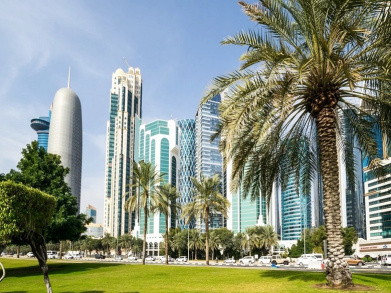Citizen poet: Joseph Brodsky was honored in Ashgabat
01.12.2020 | 00:51 |A memorial evening party in honor of the 80th anniversary of the outstanding Russian poet of the 20th century, Nobel prize winner Joseph Brodsky was held in Ashgabat. The rich biography of the writer, who was born in Russia and was forced to immigrate to the United States, made him a citizen of the world. He extensively traveled in Italy, visited Turkey, Georgia, Armenia and other countries, and from each trip abroad, the observant poet brought itinerary and essays.
The guests of the creative evening shared their impressions about getting acquainted with the works of Joseph Alexandrovich. And as it turns out, everyone has “their” Brodsky. For someone, he is a non-returnee from the poem “From Nowhere with Love”, for others, a talented translator who introduced Russian-speaking readers to the poetry of the English lyricist John Donne. In my subjective view, Brodsky is a pilgrim, an eternal wanderer or nomad, whose life path is tragic, but, of course, great.
“The great man looked out of the window, and the whole world ended for her on the edge of his wide Greek tunic...” Quoting the lines of Joseph Alexandrovich, the actress of the ARTist Ashgabat Theater Tatyana Ovezmuradova gave a kind of “tour” of the fate of the poet, “hooligan”, dissident, who planned once to hijack a plane and fly to Afghanistan. Brodsky said, “You can take a glance at your Fatherland from the outside only when you are outside the walls of the Fatherland. And it is not known who is the greater nomad: the one who wanders in space, or the one who wanders in time.”

Extracts from Brodsky’s essay “Journey to Istanbul”:
“I am not a historian, journalist, or ethnographer. At best, I am a traveler, a victim of geography. I have seen mosques in Central Asia – mosques in Samarkand, Bukhara, and Khiva: authentic pearls of Muslim architecture. I was nineteen years old, but that’s not why I remember these mosques cherishingly. They are masterpieces of scale and color; they are evidences of the Islam lyricism. Their glaze, their emerald and cobalt are imprinted on your retina significantly due to the contrast with the yellow-brown color of the surrounding landscape.”
“Istanbul – the Greek name, occurs, as it will be said in any guidebook, from Greek “stan polin” – which means simply “city”. “Bir bardak chai” – one glass of tea. Tea in Turkey is wonderful, better than coffee. It is strong, the color of transparent brick, but it does not excite, because it is served in this bardak – a glass with a capacity of fifty grams, no more. It is the best of all that I came across in Istanbul, this crossover between Astrakhan and Stalinabad.”

The organizers of the evening in memory of Joseph Brodsky in Ashgabat were the representative office of Rossotrudnichestvo. Yevgeny Beloglazov, head of the Department of Education, Science and Culture of the Embassy of the Russian Federation (representative of Rossotrudnichestvo) in Turkmenistan, noted that the possibility of holding a competition among students of Turkmen universities for the best translation of poems by Joseph Alexandrovich into the Turkmen language is being considered.
“It would be good to translate Brodsky into Turkmen, because he is not only a Russian poet, but also an international personality,” said Yevgeny Beloglazov.

Joseph Brodsky died in January 1996. He was buried in the San Michele cemetery in Venice. The Latin inscription on the tombstone reads “Letum non omnia finit” – “Not everything ends with death”.











